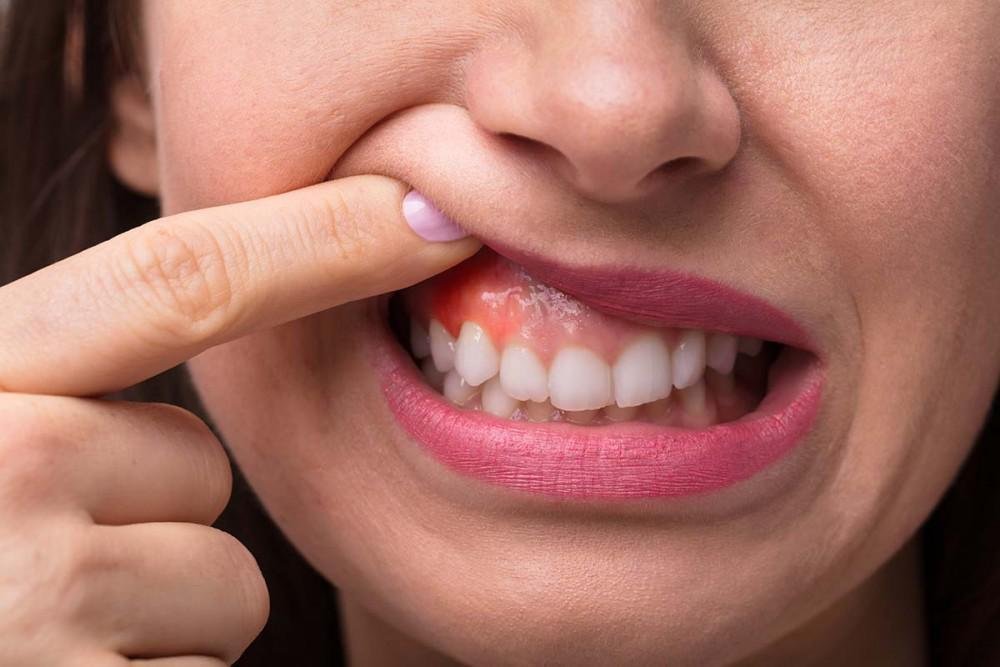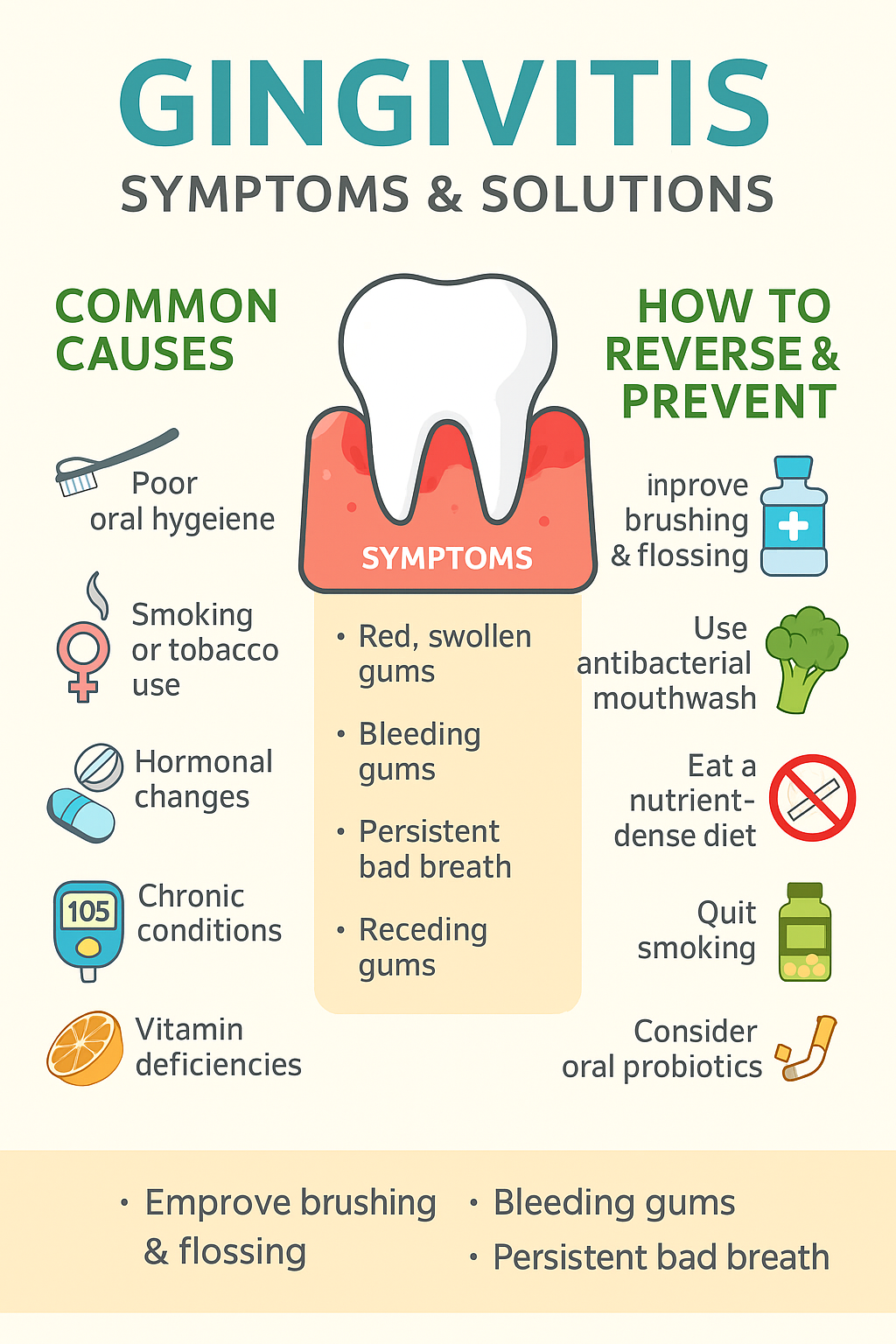Gum disease, or periodontal disease, is a common yet often overlooked oral health issue. It begins silently, with subtle signs that many people dismiss. Catching gum disease early is crucial—not only for your oral health but for your overall well-being.

What Is Gum Disease?
Gum disease starts with plaque buildup at the gumline. Over time, this leads to inflammation (gingivitis), which can progress to more serious conditions like periodontitis, tooth loss, and even systemic health issues if left untreated.
1. Bleeding Gums When Brushing or Flossing
This is one of the first signs of gum irritation. While many people think this is normal, healthy gums should not bleed with gentle brushing or flossing.
2. Red, Swollen, or Tender Gums
If your gums look inflamed or feel sensitive, your immune system is likely responding to bacterial buildup beneath the gumline. Don’t ignore these changes—they’re warning signs.
3. Persistent Bad Breath
Odor-causing bacteria thrive in inflamed gum tissue. If brushing and mouthwash don’t fix your breath, the issue may be beneath your gums. Learn more here.
4. Gum Recession or Teeth Appearing Longer
As inflammation worsens, gums can begin to recede, exposing more of your teeth and increasing sensitivity. This creates pockets where bacteria accumulate.
5. Loose Teeth or Changes in Bite
In advanced cases, the supporting bone structure weakens, which may cause teeth to shift or feel loose—signaling severe gum disease.
How to Prevent and Reverse Early Gum Disease
- Brush and floss consistently, especially along the gumline
- Use an antibacterial mouthwash to reduce inflammation
- Stay hydrated and maintain a healthy diet
- Schedule regular dental cleanings
The Role of Oral Probiotics in Gum Health
Emerging research shows that your oral microbiome—the balance of good and bad bacteria in your mouth—plays a significant role in gum health. Products like ProDentim contain beneficial probiotic strains that help reduce inflammation, crowd out harmful bacteria, and support long-term gum resilience.
Final Thoughts
Don’t wait until gum disease becomes painful or irreversible. By recognizing the early signs and taking action now, you can protect your smile and avoid costly dental procedures in the future. Combine proper oral hygiene with probiotic support to give your gums the care they deserve.
